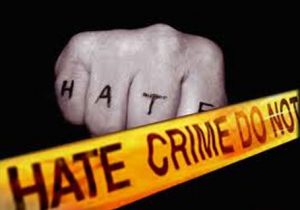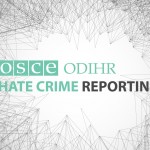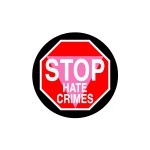Hate crimes in BiH in 2015: only one in eight perpetrators punished
 On 16 November 2016, the International Tolerance Day, the OSCE Office for Democratic Institutions and Human Rights (ODIHR), on its website that serves for reporting on hate crime, published data on the number of hate crimes recorded during 2015.
On 16 November 2016, the International Tolerance Day, the OSCE Office for Democratic Institutions and Human Rights (ODIHR), on its website that serves for reporting on hate crime, published data on the number of hate crimes recorded during 2015.
The website was launched in 2014 with the aim to facilitate access to information on hate crimes that ODIHR gathered to member states, civil society, the media and the public. It is important to emphasize that the civil society plays a vital role in reporting on hate crime because it complements and contextualizes the official data, but also reveals the gaps in official reports. ODIHR cooperates closely with civil society and international organizations, with the aim to improve hate crimes reporting.
The information for 2015 include reports from 41 states, OSCE members. The report includes data related to incidents that 113 civil society organizations have reported on, total of 5,357 incidents in 41 countries, and that includes 4,197 incidents that were sorted by the type of incident and the prejudice as a motivation for the incident. To this information the data from international organizations, UNHCR and OSCE Mission from 35 countries were added.
Reporting hate crimes still the key challenge!
Unfortunately, many victims do not report hate crimes cases. This is affected by many reasons, from language barriers to distrust in authorities. There is a constant need to work with the marginalized social groups in order to encourage and empower them to, when these cases occur, report them to the institutions in charge, for efficient processing and sanctioning of the perpetrators. ODIHR cooperates closely with civil society in order to overcome this challenge, and helps with strengthening cooperation between the civil society and government.
What is the situation in BiH?
According to the official ODIHR report for 2015, 24 hate crimes were recorded in Bosnia and Herzegovina. The same number of cases were recorded in Croatia (24), and in Serbia there were 79 cases recorded. The number of prosecuted hate crimes in BiH is 12, while only 3 perpetrators were punished.
In the report for 2015 that OSCE Mission to BiH delivered to ODIHR the cooperation with civil sector on hate crimes was highlighted. When it comes to police agencies and judicial institutions, the cooperation with Sarajevo Open Centre through the two-year project “Combating hate crimes in BiH” was also emphasized, in the scope of which many trainings regarding hate crimes, more precisely the prejudice as a motive for the crimes, took place, and included 155 police officers who attended.
ODIHR notes that BiH has not submitted data on hate crimes cases, prejudice-motivated.
In the context of Bosnia and Herzegovina, the hate crimes-affected social categories are: returnee communities, religious and sacral objects and property of religious communities, LGBTI and Roma persons.
Regarding LGBT persons, in 2015 Sarajevo Open Centre documented 103 hate speech and incitement to hatred and violence cases, and 20 cases of hate crimes motivated by prejudice based on sexual orientation and/or gender identity. From January to March 2016 Sarajevo Open Centre documented 23 cases of hate speech and incitement to hatred, and 2 cases of hate crimes motivated by prejudice based on sexual orientation and/or gender identity. This data relate to hate crimes towards LGBT persons that were not necessarily reported to the institutions, that points to the still low level of trust in the institutions, and to the fact that violence against LGBTI persons is still in the so called “grey” area. Research that National Democratic Institute carried out in 2015 showed that 15% of LGBT persons in BiH has suffered physical violence because of their sexual orientation and/or gender identity, and that 72% suffered verbal abuse and harassment. This research did not include intersex persons.
Hate crimes in the BiH criminal legislative are regulated on the entities and BD levels. The first significant amendments were made in 2010 in the Criminal Codes on state level, in BD and RS, and in 2013 the regulation was improved in the Criminal Code of RS, and, finally, in 2016 in the FBiH. Hatred (prejudice as the motive) is being defined as the aggravating circumstance when sanctioning all crimes that the Criminal Law of BiH regulates, while the Criminal Code of RS regulates hate crimes as the aggravating circumstance. The new amendments to the FBiH Criminal Code regulated hate crimes as the aggravating circumstance.
hate crimesODIHROSCE BiH
 Submission to the 2014 ODIHR Hate Crime Report: number of hate crimes towards LGBT activists has increased
Submission to the 2014 ODIHR Hate Crime Report: number of hate crimes towards LGBT activists has increased OSCE/ODIHR hate crime data for 2013 now available
OSCE/ODIHR hate crime data for 2013 now available